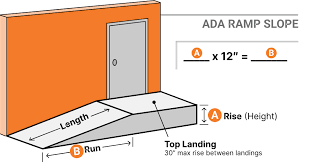There are several different ways to reduce energy usage in your household, ranging from basic behavioural changes to comprehensive home upgrades. Saving on utility bills and saving the environment are the two main reasons for conserving electricity.
From installing solar panels to reducing electric consumptions, there are various ways you lower down your energy consumption and contribute to the environment as well.
Let’s look into some to the tips which you can apply in your day-to-day life and have low energy consumption.
1. Changes in your daily routine
You don’t actually need to go out and buy energy-efficient goods to reduce the energy usage in your house. Energy consumption can be done simply by turning off the lights when you do not need them. This would not only reduce the electricity bill but also helps us to conserve energy.
The other alternative to conserve the energy at home is to cut down energy-consuming devices like hang-dryer for clothes, dishwasher, dryer, etc. and perform the task manually.
Many modern-day electronic devices such as TVs, laptops to smartphones do not get turned off directly. Instead, they remain on a stand-by mode; such devices can be turned off, which would eventually lead to energy consumption and bill saving as well.
The lifestyle changes have a great impact on utility savings. The changes such as turning down the heat of a thermostat during winter and using less air-conditioner could really be beneficial for energy consumption. The heating and cooling costs make up almost half of the average utility bills in a household, so these reductions in heating and cooling intensity and frequency give the greatest savings.
There are few monitoring tools as well, which could help you to analyze your day-to-day energy consumption. These tools would guide you through cutting down the home appliances which use more electricity.
2. Using the energy-efficient bulbs
Traditional light bulbs use so much power and have to be replaced more often than their energy-efficient alternatives. Halogen incandescent bulbs, compact fluorescent lights CFLs, and light-emitting diode bulbs use less energy anywhere from 50-80% and last 5-10 times longer than traditional bulbs.
Although energy-efficient bulbs are a bit expensive, their properties like energy efficiency and longer services help them to run for a longer time. Energy-efficient bulbs are true contributors in terms of saving environmental and financial benefits.
3. Choosing energy-efficient appliance
Most of the household appliances which work on electricity lead to electrical consumption of 25-30% annually. Thus while purchasing an appliance, there are two factors you should consider mainly the purchasing price and annual operating cost. Although the energy-efficient appliance is moderately expensive, their operating costs are 15-27% conventionally.
While purchasing the energy-efficient appliances, you should be aware of the energy star label available on the appliances. Energy star label differs from brand-to-brand and appliances. The more the availability of stars, the more efficient is the appliances. Thus while purchasing the appliance, you should always have a look at the energy star label.
4. Installing solar panels in the house
Solar panels provide a great alternative for energy consumption. These panels help us to generate electricity as well as it is used for heating water. They can also be used to run your motor vehicles. The sun shines bright in most parts of the world, and thus people are trying to utilize it as much as they can.
Renewable energy is practised all over the world. It adds an add-on benefit to your energy-saving program.
5. Reducing water heating expenses by using energy-saving appliances
Water heating adds a great deal to the overall energy consumption. There are three ways to minimize your water heating costs other than installing an energy-efficient water heater. Namely, you can either use less hot water, switch down the thermostat on your water heater more frequently, or insulate your water heater periodically.
While choosing a water heater, you should be aware of a few things that meet your need, and it must be energy efficient as well. This would help you to reduce energy consumption as well as help save around 30-40% energy.
6. Try to insulate your house with energy-efficient products
Insulation plays a major role in energy conservation. There are many insulation kits available in the open market. Window-pane plays an important role in insulation. It is considered tho have a double-paned window in the house. This helps to regulate the home temperature.
Conclusion
Energy conservation not only contributes to the environment but also helps us to save or money. There are several energy-saving tricks that must be practised in our day-to-day life.
Are you passionate about sharing your insights and expertise? We invite you to write for us! Whether you’re a seasoned writer or just starting out. We’re looking for fresh perspectives on a variety of topics, from lifestyle and wellness to technology and travel.
 Lifeyet News Lifeyet News
Lifeyet News Lifeyet News





